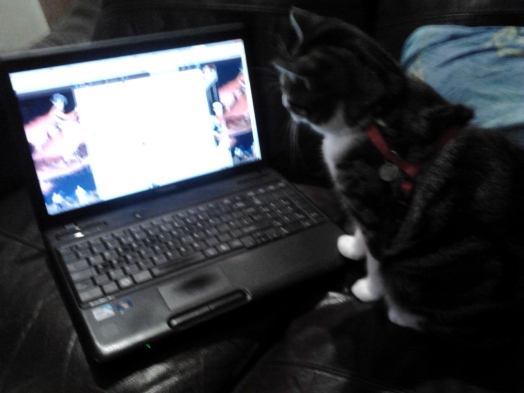[Minor spoilers for The Last of Us and BioShock Infinite follow.]
The closest I am to a parent is a cat owner. For empathising with parenthood-themed videogames it’s a serviceable enough reference point. A year ago I’d have called myself a dog person with zero hesitation, and yet here I am: I love our kitten, Zoe. The way she nuzzles her face into my nose tells me she loves me.
I can tell a few things about her, which I pretend amount to a singular personality. Zoe loves to climb into the tiny space behind the gas boiler, so we’ve had to block it off with Stephen King books. When the plumbers came around they took away the boards under the kitchen cupboards, and since Zoe saw they could be removed she’s dedicated her mornings to clawing them ajar herself, even if she needs to open the fridge door to get the angle at them. She thankfully prefers the cheap Tesco cat food to the expensive Whiskers stuff. As soon as she was able to jump high enough she took to perching atop doorframes – I’m afraid she’ll one day climb up into the ceiling tunnel leading to the skylight and slip to her death, even though one time she walked happily away from a two-storey fall from the bathroom window. She wants to be friends with the dog next door. They like to stare at one another for extended periods.
So I have a cat, we’ll approximate her to a child. She’s wilful enough. I’m watching her grow up too quickly, learning new things, getting bored of old toys. When I’m not home, I worry she’s wedged herself in some crevasse and died. I wonder if I’m not paying her enough attention or if there’s something wrong with her litter tray and that’s why she’s been pooing in the sink. We tried teaching her to use the toilet but she didn’t fully get it.
Zoe isn’t a gun I point at a butterfly and shoot. She doesn’t “manage my resources” by eating and crapping and letting me clean it up. She is another living being, astonishingly, not a power-up or an accessory that increase my abilities.
And yet, parenthood as described by videogames on a whole generally tells us this is what children are: dreadfully bothersome creatures who suck up all your energy and tolerance, baited with rewards. Apologism follows, as it did with BioShock Infinite, which sought validation of your daughter-figure through mechanical use. “Elizabeth can change the shape of the battlefield”; she can find loot to hurl your way. Irrational makes Elizabeth useful as a gateway to making her endearing, exalting her systemic function.
BioShock Infinite’s vision of parenthood is finding someone of a younger generation to help you do the things you were doing anyway, indistinguishable from a minion but for your tone of voice. In this manner, your daughter is a walking, talking pair of pants that give your bullets fire damage. But they say the relationship transcends because she’s always there on-screen and sometimes points to things and says “Ooo”.
Irrational divines its philosophy from the popular school of thought that says if it’s not happening to you, around you or of you, you will instantly doze off, and Elizabeth’s existence is included in this. Although suddenly free and all-powerful after a life of imprisonment, Elizabeth doesn’t have an ounce of self the entire game through. She can’t even scavenge without Booker’s permission. Elizabeth’s actions are only those which you permit or those cued to environmental triggers, which Irrational boasts you can ignore and she will attend to your convenience. The Lamb of Colombia is a sheep to Booker’s empowerment.
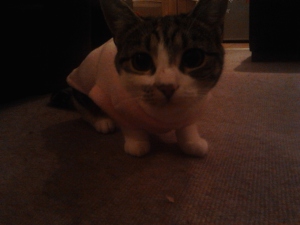 The Last of Us carries a similar message more expertly told. Joel’s ward, Ellie, serves little in the way of gameplay functionality. I think she offered some bullets once and they were discretely added to my backpack, although I could be wrong. Sometimes she will stab a bandit to death, sparing me the cost of combat, and she does it off her own back, without my say-so. It grants her a voice outside of mine. Baddies can even grapple with her, making her a little bit less invisible than Elizabeth.
The Last of Us carries a similar message more expertly told. Joel’s ward, Ellie, serves little in the way of gameplay functionality. I think she offered some bullets once and they were discretely added to my backpack, although I could be wrong. Sometimes she will stab a bandit to death, sparing me the cost of combat, and she does it off her own back, without my say-so. It grants her a voice outside of mine. Baddies can even grapple with her, making her a little bit less invisible than Elizabeth.
If your relationship with Elizabeth is utility-based, with Ellie it’s behaviour-based. TLOU is less concerned with making her beneficial to you and more concerned with making her feel real: speaking and acting in natural or unpredictable ways, existing alongside me.
Still, she plays second fiddle to Joel because, ultimately, the game revolves around Joel growing up. It’s the story of him reconciling the death of his daughter and learning to trust again, to love again, albeit in a terrifying antagonistic way. Joel’s patriarchal need to command Ellie supersedes her autonomy – each major step in their relationship begins or ends with his assertion of dominance over her. The climax centres on Joel’s inability to accept her self-sacrifice for the good of all humanity. It’s hard to believe Naughty Dog didn’t intend for Joel to be a selfish and frightening villain and Ellie the relatable heroine.
Parenthood is nevertheless a major theme in Joel’s character arc, although told across the narrative of an increasingly subverted father figure. I like to imagine TLOU’s sequel is Legacy of Kain: Soul Reaver. “Joel was deified.”
So to the extent that BioShock Infinite and TLOU are about parenthood, they conceive it as control. Two of the biggest games of recent years dealing with a narrative as old as humanity, and this is the best they can figure: two father-figures to whom a daughter is but a mechanism for their own wish-fulfillment. More accurate to what I imagine parenthood to be, at least by the meagre extrapolation of having a cat, is for the burgeoning autonomy of the child to take centre stage, which can take the form of the child increasingly stealing narrative focus or performances. In strictly systemic, mechanical terms, when I think of parenthood, I think of A Mother in Festerwood.
Here it’s a harsh world. Monsters lurk deep within Festerwood – you can see them all around, great big purple behemoths and red-eyed, tentacled ghouls. Jotted around the woods amidst the dangers, however, are harmless bunnies, treasure chests, and what looks like a sword sticking out of the ground. In the centre of this bustling world is my home, where I live with my son, who I’ve decided to name Sprog.
Sprog wants to wander outside the house. He’s compelled to. From the moment he’s a tiny sprite, he drifts towards Festerwood as if it’s calling to him. My son, the adventurer.
But should he wander in, dinky as he is, he will surely die. Within the clearing surrounding our house I know he’s safe, but beyond that, where I can’t go, there’s so much danger all around. I coddle Sprog and keep him within the clearing, pushing him home again and again. I can do nothing but use my body as an obstacle, encouraging him homeward. The forest will kill him. Anything could kill him.
As Sprog wanders around the clearing, he experiences the world. Since this is a JRPG mock-up, he levels up his health and strength as he wanders. Every time I push him back to the house, the experience bar empties. Regardless of his rate of levelling up, time passes on and with it Sprog is also growing up, getting bigger and bigger, faster and faster. Soon I won’t be able to stop him from leaving. He’s always been an adventurer; try as I might, one day he will outmaneuver me and run away to see the world. So I skirt around the clearing as far out as I can manage and I try to encircle Sprog within it. I can’t dote on him: I need to let him roam and learn how to deal with the world while I’m still around to accompany him.
Then comes the day when he finally breaks past me – is he too young? Is he prepared? Was I over-protective? Should I have been paying more attention and stopped him? Should I have guided him northward when I had the chance, away from the dragons down south? He’ll die. He’ll stumble into a cyclops or be run down by a sleuth of bears and he won’t make it home. Sprog will blip out of existence and all that will be left is his grave. And the game ends.
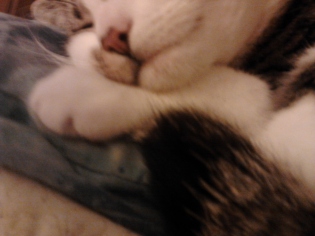 Interpersonal tension comes about from conflict of autonomy, mine and his. He wants to leave and I want him to stay. He needs to learn and I need to keep him safe. I can’t stop him from growing up. I can’t fawn over him and, in my fear, deprive him of living his life. I can’t throttle away her agency and her individuality. But I’m scared Zoe might run away one day. She might not be able to find her way back, or she might not be able to reach the apartment. We live in the centre of town – I’m scared she’ll get run over. She wants to go outside so much, I’m worried she might transfix on a butterfly and pounce right off the balcony. She’s still only a kitten.
Interpersonal tension comes about from conflict of autonomy, mine and his. He wants to leave and I want him to stay. He needs to learn and I need to keep him safe. I can’t stop him from growing up. I can’t fawn over him and, in my fear, deprive him of living his life. I can’t throttle away her agency and her individuality. But I’m scared Zoe might run away one day. She might not be able to find her way back, or she might not be able to reach the apartment. We live in the centre of town – I’m scared she’ll get run over. She wants to go outside so much, I’m worried she might transfix on a butterfly and pounce right off the balcony. She’s still only a kitten.
My mam gets worried if my brothers or I don’t answer her calls. She knows we have lives of our own, we’re tired or busy or out and about. We’ve long since left the nest, but still she frets.
There’s another ending to A Mother in Festerwood: if Sprog survives for long enough, he comes home to his elderly, grey-haired mother waiting by the porch. He tells me about his adventures, the treasures he found, the beasts he has slain. His speech bubble expresses love and he enters the house. Mine does too, and I join him.
This piece was community funded. If you liked this article, please consider supporting my writing by visiting my Patreon and becoming a patron.

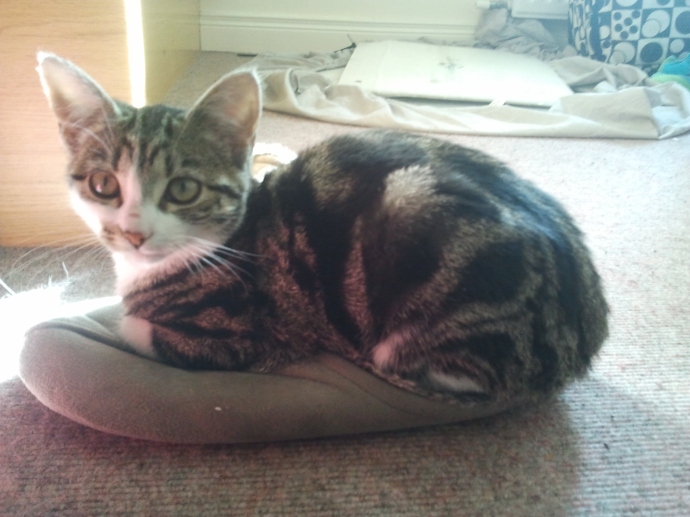
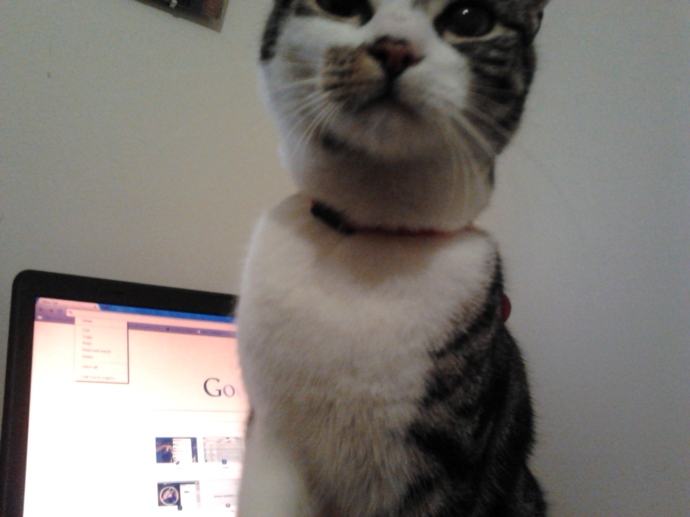
![2013-11-04 00.20.29[0]](https://normallyrascal.files.wordpress.com/2014/04/2013-11-04-00-20-290.jpg?w=690)
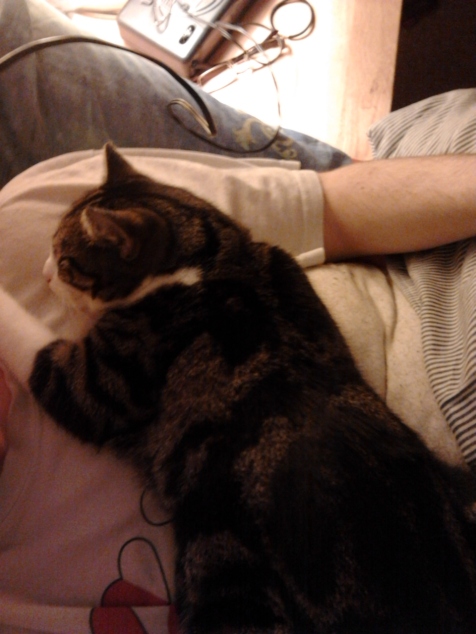
![2013-11-04 00.23.05[1]](https://normallyrascal.files.wordpress.com/2014/04/2013-11-04-00-23-051.jpg?w=690)
